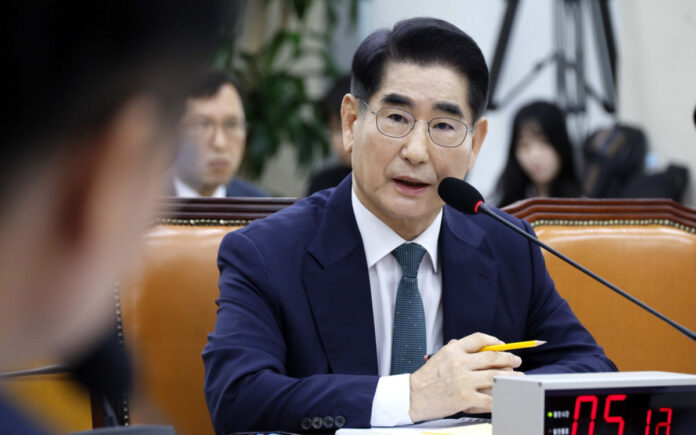Seoul: South Korean prosecutors arrested former Defence Minister Kim Yong-hyun on Sunday, accusing him of playing a key role in President Yoon Suk Yeol’s contentious declaration of martial law. The move followed Yoon’s impeachment vote, which he survived late Saturday, despite widespread political fallout.
Kim stepped down on Wednesday after Yoon rescinded the martial law order, which lasted only six hours. Prosecutors alleged that Kim had proposed the martial law declaration, citing evidence presented in impeachment filings and confirmed by senior military officials.
Investigation Intensifies
A special investigative team seized Kim’s mobile phone during the arrest, prosecutors confirmed in a statement. Kim voluntarily appeared at the Seoul Central District Prosecutors’ Office early Sunday morning for questioning, local media reported. In addition to Kim, three opposition parties filed a complaint accusing President Yoon, Kim, and martial law commander Park An-su of insurrection. If convicted, the crime is punishable by death or life imprisonment.
Authorities also raided Kim’s office on Sunday as part of a broader investigation into treason claims against Yoon and his top aides.
Political Fallout and Resignation Talks
The leader of Yoon’s ruling People Power Party, Han Dong-hoon, announced during a joint press conference with Prime Minister Han Duck-soo that President Yoon would withdraw from foreign and domestic affairs before stepping down early. “We will manage state affairs in consultation with the prime minister,” Han stated, signaling a shift in leadership responsibilities.
Also Read | Taiwan Reports Surge in Chinese Warship Presence Near Its Waters
Hours before the impeachment vote, Yoon delivered a televised apology, acknowledging the controversy surrounding his martial law decree. Han interpreted Yoon’s remarks as a promise to resign, a sentiment echoed by opposition lawmakers who accused the president of mobilizing military forces to suppress parliamentary action.
Martial Law Order Sparks Crisis
On Tuesday night, President Yoon issued the martial law decree, citing the need to counter “anti-state forces” and political obstruction. However, the order faced immediate resistance, with parliament unanimously voting to nullify it. Yoon rescinded the decree just six hours later, but the decision plunged South Korea into a political crisis, raising concerns about the country’s democratic stability.
Also Read | Damascus Liberated: Rebels Announce Victory Over Assad
Prime Minister Han Duck-soo sought to reassure international partners, stating, “The cabinet will maintain trust with our allies, especially the United States and Japan.”
South Korea’s Democratic Reputation at Stake
The martial law controversy has been described as South Korea’s most significant political crisis in decades, threatening its standing as a democratic success story in Asia. As investigations into the incident continue, the nation faces a pivotal moment that could reshape its political landscape.



